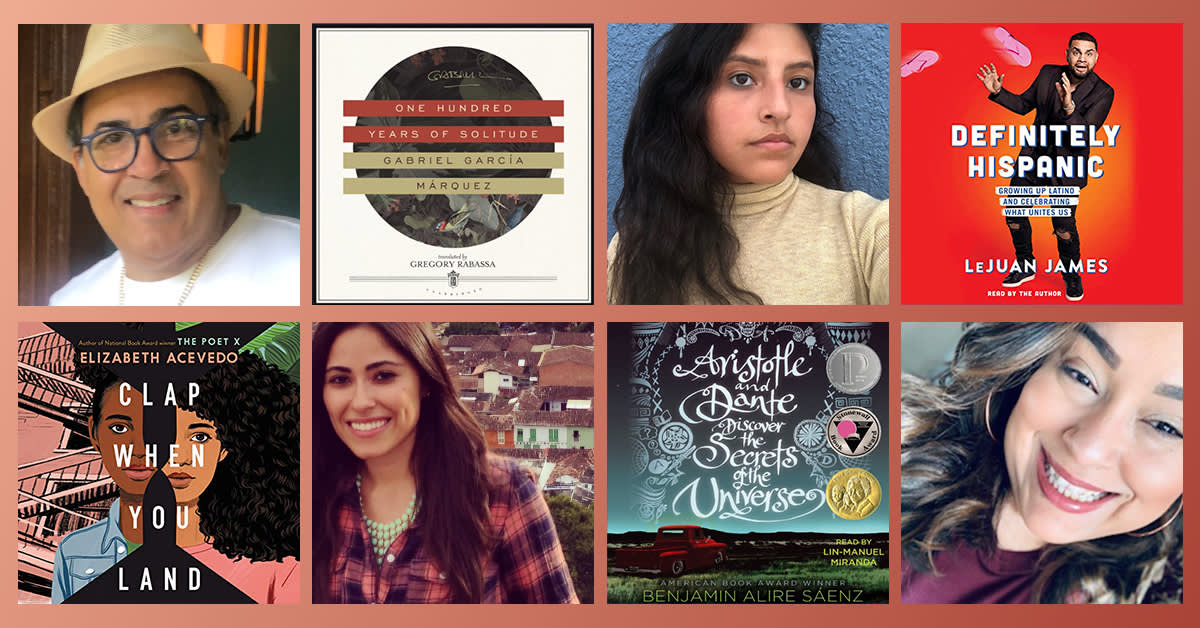Being Latino or Hispanic is not monolithic. It is not limited to a single race, language, or culture. On the contrary. The Latino and Hispanic community is diverse in experiences, identities, and heritages. And therein lies the beauty.
As a first-generation suburban kid born to a Salvadoran mother and Colombian father, I often felt out of place growing up. Checking a box on how I identified wasn’t an easy task. I didn’t feel American enough or Latina enough. Pat Mora’s poem “Legal Alien” perfectly captures what it’s like to be bicultural—forever oscillating between two worlds, never firmly planted or belonging to one. In honor of my ancestors and Latin American roots as well as my homeland of the United States, I identify as American Latino. My daughter, who is part Dominican, has an even more varied heritage than I do. She, too, will have to forge her own path and discover her own identity. But one thing is certain, like her mami, she is far too special to fit in one box.
In the spirit of embracing diversity, I’m proud to be a part of Audible’s dedication to elevating Latino and Hispanic narratives.
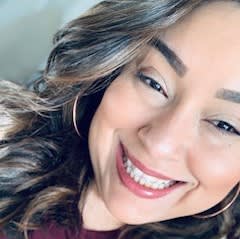
Jasmine, Customer Service
What does Latino and Hispanic Heritage Month mean to you? Growing up, I always looked forward to the assemblies and activities for my school’s celebration of Hispanic Heritage month. I went to Roberto Clemente School, in North Newark (Lil Puerto Rico), where they would bring in folklore dancers, storytellers, and the family of the late Roberto Clemente.
I would always ask my grandparents questions about our heritage and ask my grandfather to play songs on his guitar. I looked forward to commercials that celebrated Hispanic Heritage month. If there were flags, I used to search hard for mine–the Puerto Rican flag.
What makes up your unique Latino/Hispanic identity? I am third-generation Puerto Rican American. My paternal grandparents raised me, so my Spanish was stronger than my parents'. My maternal grandfather spent car rides teaching me how to roll my R’s, because it was important to him that I pronounce my words correctly. I cannot forget the beauty of my Latino identity and the faith instilled in me as a child. I have the strongest-praying grandmothers, and both sides of my family are very musically inclined. My upbringing wasn’t typical. I was the kid falling asleep on the church pew. Instead of social gatherings, my grandparents took me to church on Friday nights where they sang and played the tambourine.
What title has represented your experience and resonated with you? Definitely Hispanic. The reality behind LeJuan James’ humor is beyond amazing! Honestly, this book hits the nail on the head when it comes to representation. From the aunt that always has a comment to the “overly caring” family members—they truly lack boundaries and think it’s all right. James is hilariously accurate when it comes to expressive comments that are typical in our culture. I promise you, every Latino family has at least one personality he speaks about in this listen.
How do you identify? Hispanic? Latino? Afro-Latino? How does your identity shape who you are? All of the above! Growing up, it was instilled that being Latino meant you were Hispanic and we were a melting pot, so Afro-Latino was just known to be in our blood. All of it is who I am, and I am beyond proud of it. I love mi cultura, but I guess the way I was raised makes it easy for me to just say I am all of these; no one label means more to me than the other.
What Latino/Hispanic achievement are you most proud of? I think the proudest moment I have had for our culture was when Mayra Nohemi Flores became the first female Mexican-born member of the House. She’s an American politician who represents Texas's 34th congressional district in the United States House of Representatives. When I witnessed her campaign and her drive, I was beyond excited to see this happen. “A Latina is in the House!” literally were my words when I read the article. It was a sense of great pride that came over me!
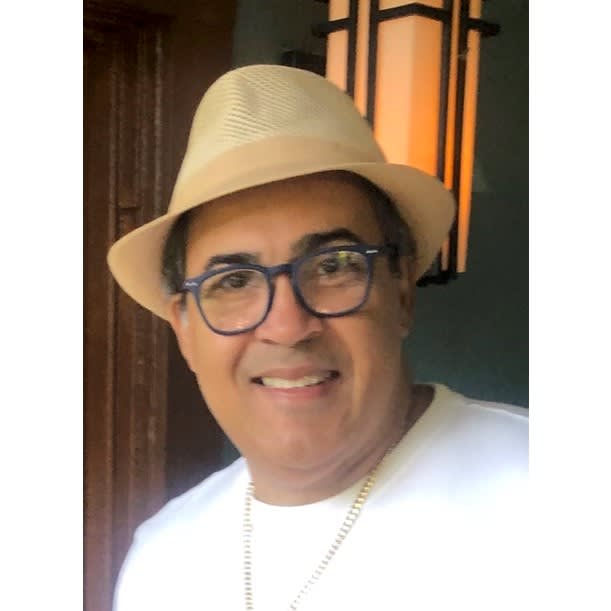
John, Employee Relations
What does Latino and Hispanic Heritage Month mean to you? Latino and Hispanic Heritage month truly demonstrates an intent to shine a bright light on the contributions of Latinos across the country, in all industries, walks of life, and societal spheres. I am truly proud of my Latino heritage and my cultural background and diversity.
What makes up your unique Latino/Hispanic identity? I am a proud New York Latino, born of parents from New York and Puerto Rico, whose grandparents on both the maternal and paternal sides were born in Puerto Rico. I have been able to trace my lineage from multi-generations not only in Puerto Rico, but also Spain and, most likely due to colonialism, Sicily and Northern Africa as well. I am exceedingly proud of that. I speak Spanish fluently and even minored in Golden Age Spanish literature in college.
Thinking about an Audible listen that resonated with you, what title represented best your experience as a Latino? I really enjoyed Clap When You Land. Coincidentally, Acevedo is my mother’s maiden name but no relation to Elizabeth Acevedo.
How do you identify? Hispanic? Latino? Afro-Latino? I identify as Latino, which from my perspective encompasses everything and I'm proud to speak Spanish every day.
What Latino/Hispanic achievement are you most proud of? My parents. I am blessed. My late father was in the military and then joined law enforcement upon his honorable discharge after the Korean War. My mother is a retired bilingual psychiatric social worker who worked with children and families in crisis for nearly 40 years. Both sets of grandparents were hardworking and loving, and instilled in us the value of education. I am proud of my three degrees I earned with honor and distinction from Manhattanville College and University of Buffalo Law School. I'm also an alum of Cardinal Spellman High School in the Bronx, the same alma mater of America’s first Latina Supreme Court Justice, Sonia Sotomayor!
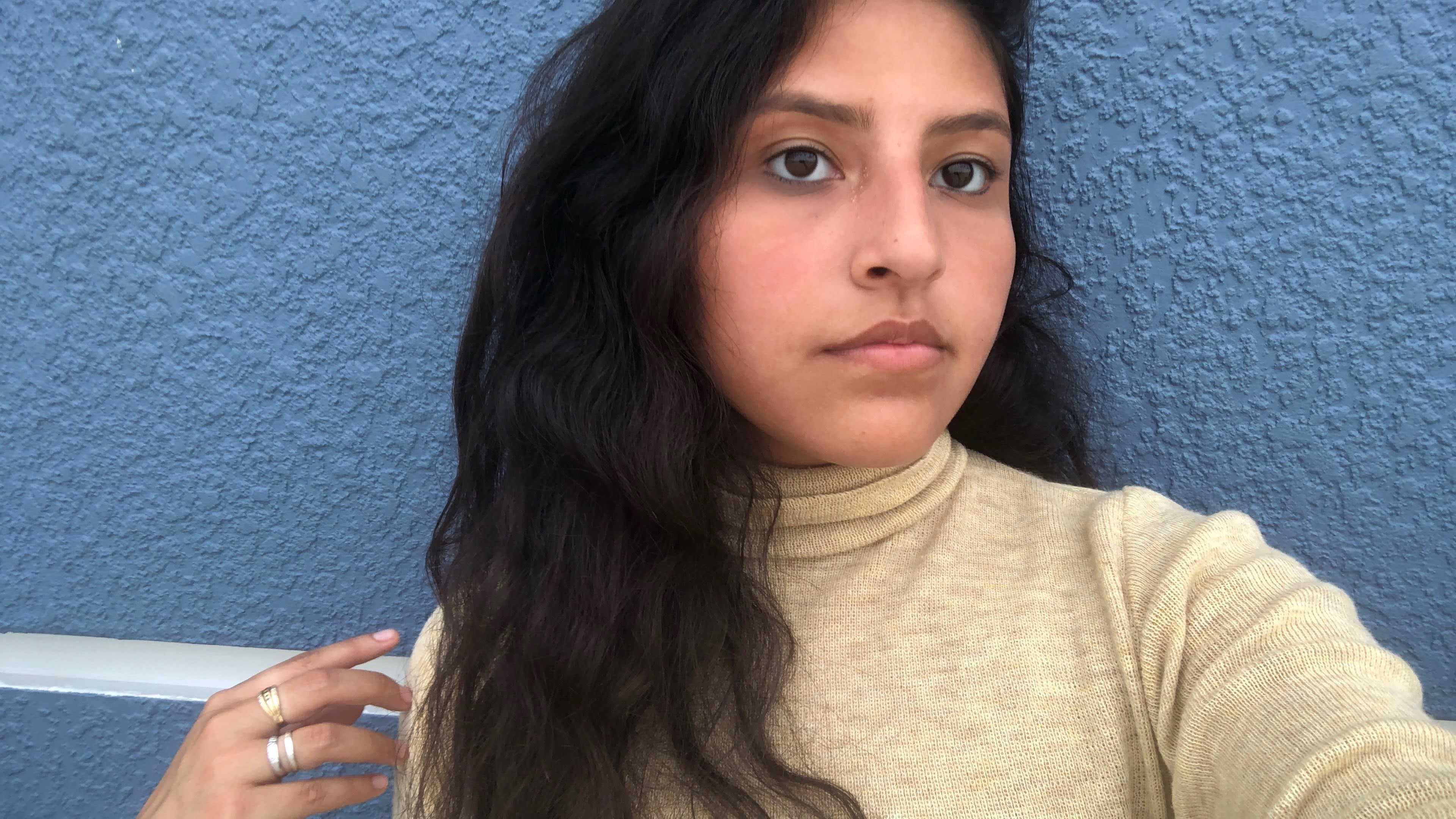
Ashley, Content Marketing
What’s the significance of Latino and Hispanic Heritage Month to you? It is a celebration of my people. It’s an opportunity for all of us to express ourselves within our culture and values, and to come together as a community. It deepens my roots.
What makes up your unique Latino/Hispanic identity? Although on paper I technically identify as an American, I am proud to always say I am Ecuadorian. I have grown up with Ecuadorian culture, food, language, and values. It is who I am.
What Audible listen resonated with you as a Latino? My favorite listen is Aristotle and Dante Discover the Secrets of the Universe. It is a timeless coming-of-age story that especially resonated with me as a first-generation American. It’s a story that highlights the confusion of identity, not knowing where exactly you fit in. It ties both worlds together. I highly recommend it.
Do you identify as Hispanic? Latino or Afro-Latino? How has this shaped you? I identify as Latino. Although I was not born there, I will always identify myself from where my parents came from. It is part of my roots and I will make sure to pass it along to future generations.
What Latino/Hispanic achievement are you most proud of? I am most proud of being the first person in my family to work in corporate America. Although it might not seem like a lot, I know I am paving the way for my family to follow their dream, no matter how big. Anything is possible. Si se puede!
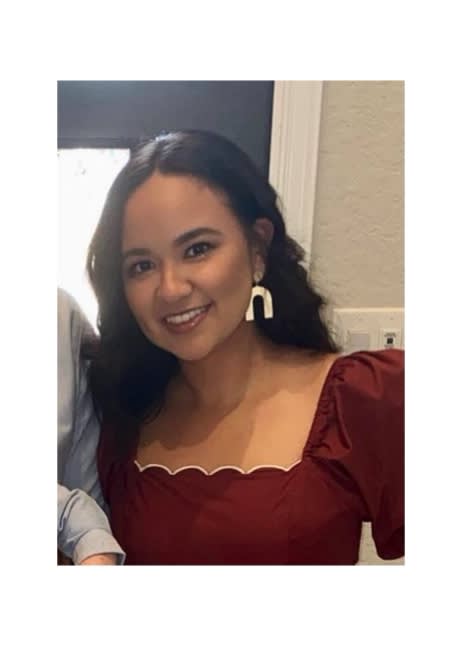
Karen, Acquisition Marketing
What does Latino and Hispanic Heritage Month mean to you? To me, it’s more than just a time to celebrate the wonderful food and music. Yes, that’s definitely important (in fact, a must!), but shedding a light on the unique ethnicities, heritages, and rich history is what it’s all about. It’s a time for me to gather with family (especially with us not being able to as much these past few years) and taking the time to learn and listen to my Latino and Hispanic friends’ unique stories and culture.
What makes up your unique Latino/Hispanic identity? My background is not one that’s well represented on TV. My mother is Puerto Rican and Cuban, and my father is Japanese but was born and raised in Peru. He moved to America as a young boy. Growing up, it was hard for me to relate to anyone other than my sisters. Which boxes were we supposed to check? Hispanic/Latino or Asian? It was always a struggle trying to compare ourselves to both our Latino or Japanese friends and our cousins who looked “different” than us. I now realize that’s one of the best parts of being me is that I don’t fit into a neatly defined box set by society. I celebrate our unique qualities. I’m proud to have been able to experience these vastly different cultures that I can pass onto my son.
What Audible listen represented your experience as a Latino? I recently listened to Next Year in Havana and absolutely loved it. It vividly depicted the beauty of Cuba but also the tragedies that ensued from the revolution. It resonated with me because my Cuban grandmother shared stories of Cuba and how magical it was for her. She was a teenager when she left home to search for work in Florida so she could send money back home. Her sacrifices and love for Cuba and its people were similar characteristics to one of the main character's. It’s a beautiful story all around!
How do you identify, and how does this shape who you are? I am a proud Latina. It means I have a deep appreciation of my unique background and my culture. It’s knowing I wouldn’t be where I am today without the sacrifice of my family to try and make it in this country without any fancy college degrees. It’s also understanding the importance of uplifting and supporting our fellow Latinos, Hispanics, and other diverse groups. It’s given me a deep appreciation of what it means to be a part of a community that relishes the similarities of our backgrounds yet celebrates the uniqueness of each.
What Latino/Hispanic achievement are you most proud of? My proudest achievement would be helping create the Unidos impact group here at Audible. I was so grateful to be one of the first people on the team and work with the amazing board members to get this off the ground and give Audible's Hispanics and Latinos a place to share stories, culture, food, laughs, etc.
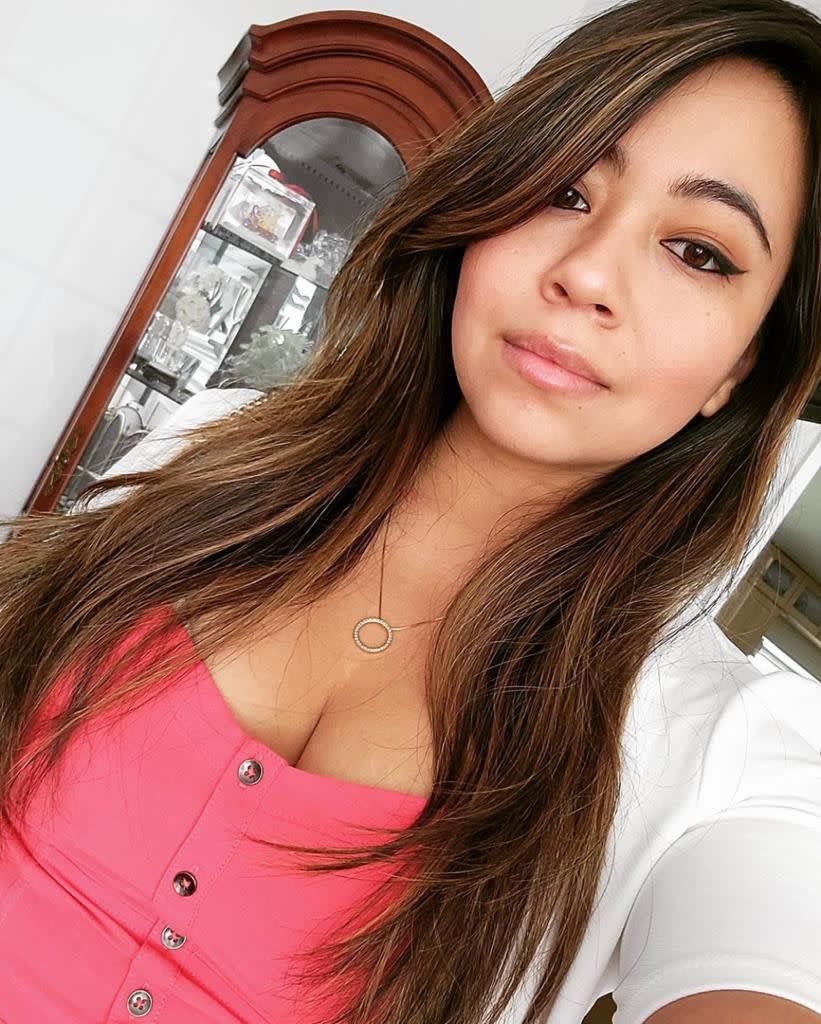
Aurora, Content Marketing
What does Latino and Hispanic Heritage Month mean to you? It’s a month to learn, celebrate, and embrace our style, our influence, y lo nuestro. It’s also a time to celebrate and amplify all the wins within the Latino community and to raise our voices to let others know about our culture—and that we are here! We are proud, we are Latinos, and we are Americans.
What makes up your unique Latino/Hispanic identity? I was born in Mexico and migrated to the United States at an early age. It’s not surprising that I lost some of my Mexican identity along the way as I was raised by my Asian grandmother. However, I find what makes up my identity as a Latina is beyond the language I speak or the holidays I celebrate. My Latina identity is my lifestyle, my outlook on life, my values, and my morals.
Thinking about an Audible listen, which one best represented your experience as a Latino? A title I’m currently listening to resonates a lot with me: American Like Me. It's a compilation of 31 stories narrated by America Ferrera and includes her friends, peers, and heroes, who share their stories about life between cultures.
How do you identify? Hispanic? Latino? Afro-Latino? How does this identity shape who you are? Ahh, I wish I could say just Latina, but by doing that it would feel like I’m excluding my Asian heritage. Unfortunately, I’m not aware of a term that will ever fully encompass all of me in one single term, and that’s fine too.
Have you considered China-Latina? China-Latina would make sense. I feel without having the Chinese American portion makes me feel as though I’m claiming to be from China, and it doesn’t seem to encompass the fact that I’m Chinese American. The more biracial or multicultural Latinos become in America, the less one term will be a one-size-fits-all.
What Latino/Hispanic achievement are you most proud of? The first, being part of the Se Habla USA campaign, a campaign created by Univision, where I worked. It celebrated our language, style, and our cultural influence, both in English and in Spanish. Another achievement was connecting to my Latino side. Prior to working there, I didn’t have many connections to my Latino heritage. However, after being exposed to so many different co-workers and friends, I now feel more connected than ever to my Latino side.
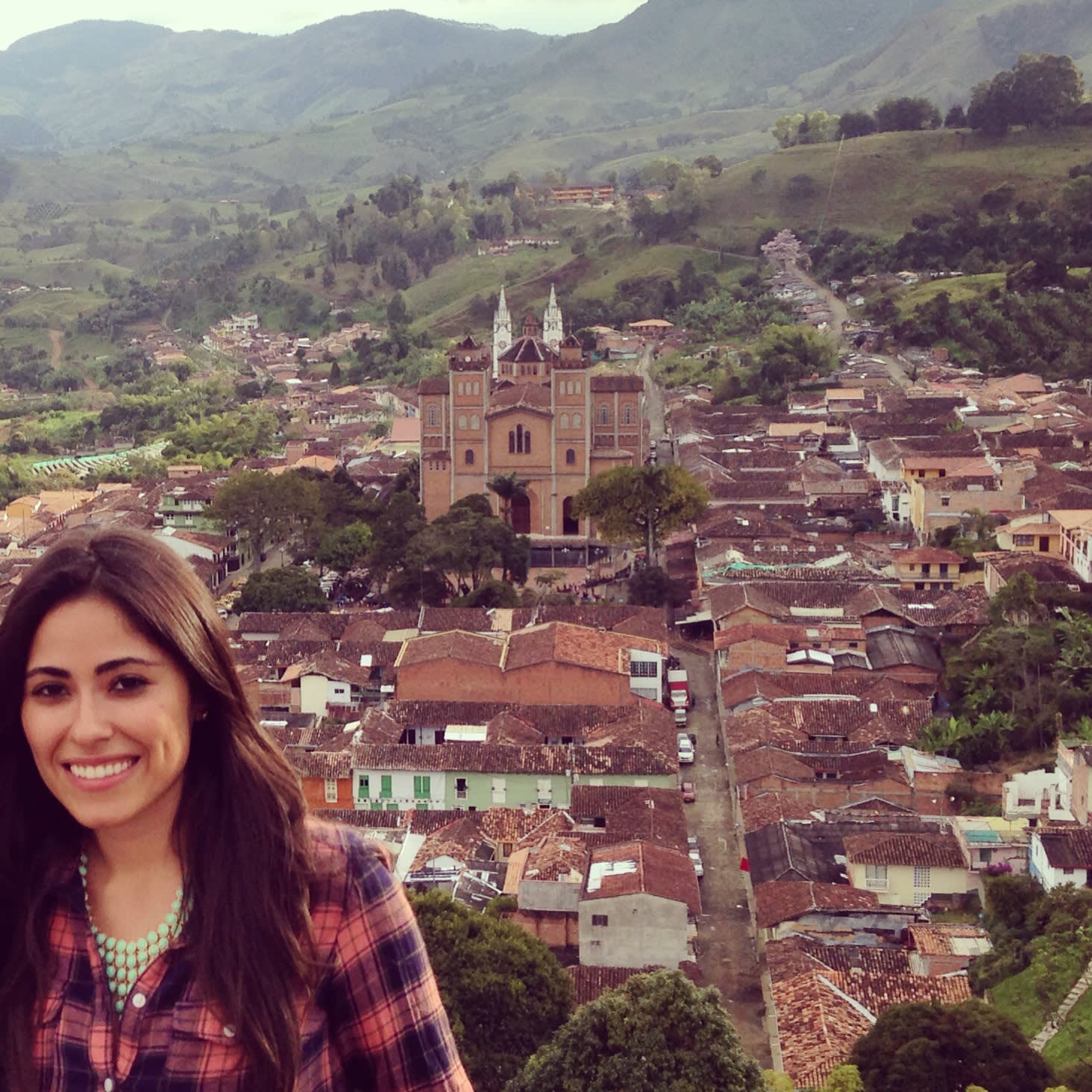
Johanna, Content Marketing
What does Latino and Hispanic Heritage Month mean to you? It’s a celebration of what it means to be Latino/Hispanic. It’s all about family and honoring the generations before you. Latino families (I have 23 first cousins just on my mother’s side) love deeply and openly, finding any reason to gather and celebrate. It’s also about the music we listen to—traditional music genres in Colombia include vallenato and cumbia. Finally, it’s about the food we consume. It’s delicious and rich, yet made up of common staples like white rice, plantains, yucca, and potatoes.
What makes up your unique Latino/Hispanic identity? My parents are from quaint, charming towns in the outskirts of Medellín, Colombia (pictured in my photo). Made up of historical architecture, rolling hills in every shade of green, the coffee and farming industries, and the humblest human beings, both towns are an integral part of my heritage and identity.
What Audible listen resonated with you because it was representative of your Latino experience? I would have to go with One Hundred Years of Solitude. It’s a complex, multigenerational story marked by magical realism, and it perfectly captures the ancestral magic of my Colombian roots.
How do you identify? Hispanic? Latino? Afro-Latino? How does this shape who you are? I identify as Latino. I love and respect the unique traditions and nuances of each Latin American country. Peru, for example, is one of the most breathtaking places I’ve ever visited. I was mesmerized by the snow-capped Andes mountains, the Inca ruins of Machu Picchu, and the colorful and culinary culture at the heart of Cusco. It was a dream trip from start to finish, and as a lover of travel and exploration, I have more Latino countries on my bucket list.
What achievement are you most proud of? Being the daughter of two beautiful, hard-working Latino parents has been the honor of my life. They left Colombia in the late 1980s and have been chasing the American Dream ever since, while keeping our heritage alive.
